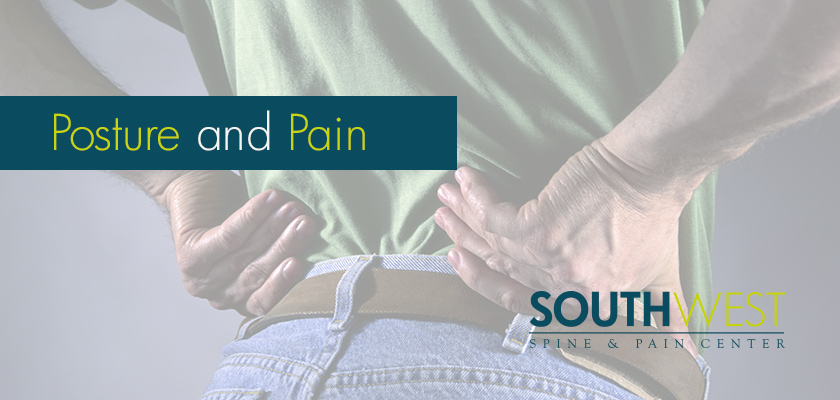
The Southwest Spine and Pain Center team has published many blogs on different ways patients can reduce back pain. There’s a blog on movement being the best treatment for back pain, a blog on PRP injections for chronic low-back pain and another blog on some of the best pillows for back pain—just to name a few!
However, did you know something as simple as changing your posture can also significantly reduce back pain? The team of pain management physicians at Southwest Spine and Pain Center is diving into this issue further to bring patients the latest information on bad posture and how it can affect pain.
You may or may not know this, but slouching puts a lot of stress on the spine and muscles in your back. Moreover, if you continue to slouch or walk with bad posture, you’re likely increasing your risk of developing significant health and pain issues like kyphosis or chronic back and neck pain. Repetitive sitting and standing with bad posture changes the anatomical structure of your spine, which can inadvertently damage vertebral discs, facet joints and constrict blood vessels and nerves.
Visible and painful symptoms associated with bad posture generally include:
- Rounding of the upper back
- Head consistently tilted downward/forward
- Irregular walking pattern
- Back and neck pain
- Frequent headaches
- Fatigue
You should have your Southwest Spine and Pain Center physician examine your back, feet, legs and/or hips for abnormalities that may be causing the change in ailment. Spine conditions like scoliosis and degenerative joint diseases like osteoarthritis can contribute to bad posture, so it may benefit you (the patient) to see an SWSP specialist to address pain or any concerns that are often caused by the conditions mentioned.
In addition to getting evaluated by a physician, it’s also imperative patients be aware of their posture and correct it whenever it begins to slump or change. Of course you may be wondering what defines “good posture.” The SWSP spine specialists recommend patients keep their ears in line with their shoulders, with their shoulder blades retracted. Poor posture while walking can also put pressure on your sciatica nerve, so try to keep your head up and centered between your shoulders, abdominal muscles active for a strong core, and neutral hips.
Having good posture can also reduce stress because proper spine alignment releases serotonin. All in all, if you’re suffering from chronic back pain due to poor posture or any other instance, call the specialists at Southwest Spine and Pain Center to schedule an appointment and to discuss any of your questions or concerns.
If chronic pain is impacting your life, don't wait to schedule an appointment at Southwest Spine and Pain Center. With three locations and growing, the pain management specialists at Southwest Spine and Pain Center are dedicated to helping those who suffer from chronic pain live the life they want to! To schedule an appointment, visit our locations tab!
The advice and information contained in this article is for educational purposes only, and is not intended to replace or counter a physician’s advice or judgment. Please always consult your physician before taking any advice learned here or in any other educational medical material.
©Southwest Spine and Pain Center, 2015
©Medical Marketing Solutions, 2015
